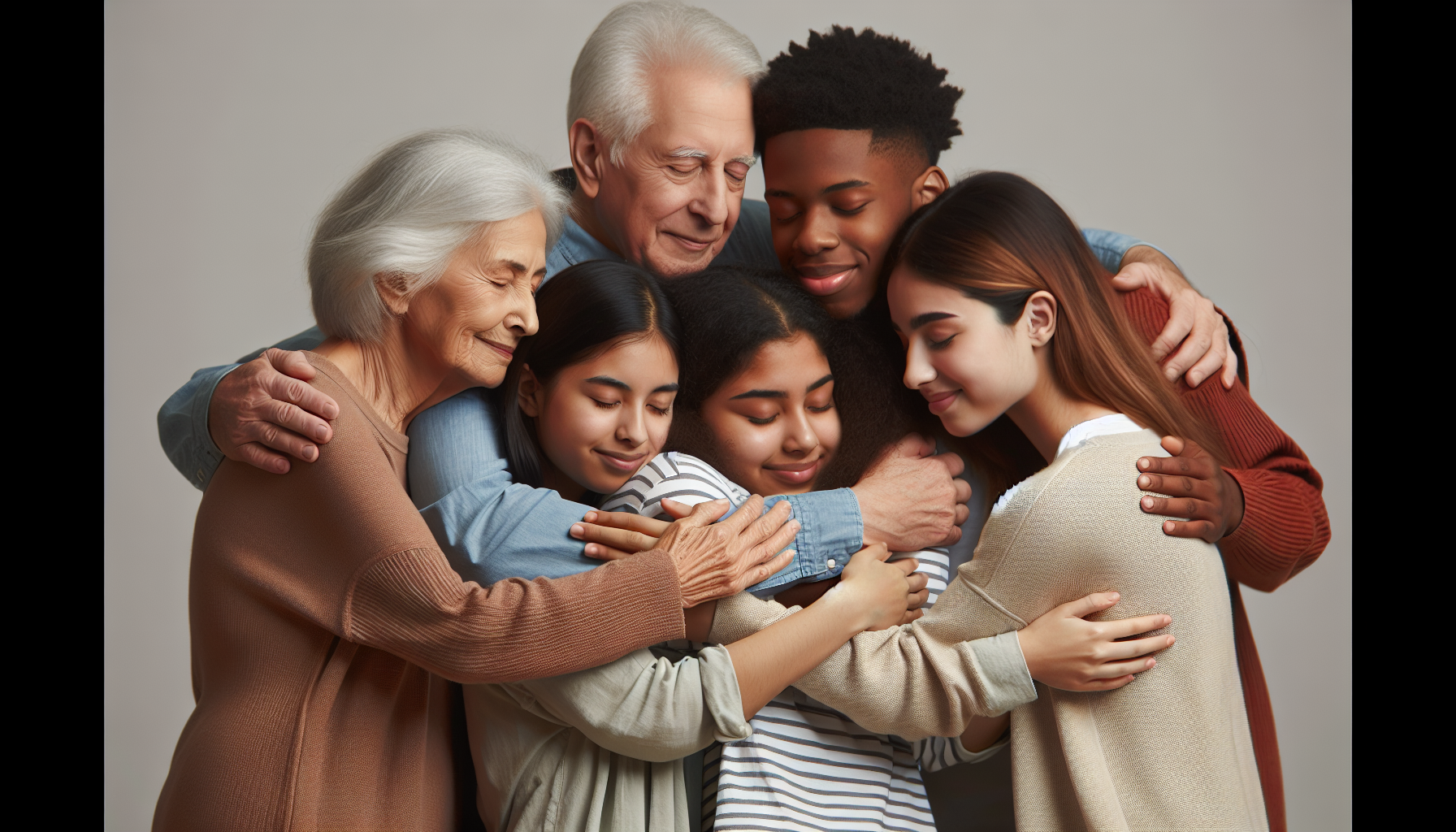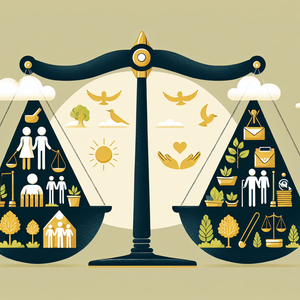Health Equity and Community Engagement: The Minnesota Department of Health's Mission

Health equity is rooted in the principle of fairness, asserting that everyone should have the opportunity to achieve optimal health regardless of socioeconomic status, race, ethnicity, or geographic location. MDH acknowledges that systemic barriers often hinder marginalized communities from accessing necessary health services. The department has prioritized health equity, recognizing that understanding and addressing these disparities is essential for improving overall public health outcomes in Minnesota.
Programs Aimed at Addressing Disparities
One of the MDH’s flagship programs is the "Culturally Responsive Health Services Initiative." This initiative is designed to enhance healthcare providers’ understanding of diverse cultural backgrounds, allowing them to better meet the specific needs of their patients. This program has been particularly impactful in communities with significant immigrant and refugee populations, where cultural misunderstandings can lead to inadequate care. By equipping healthcare professionals with the tools to provide culturally sensitive care, MDH aims to reduce barriers and improve health outcomes in these communities.
Healthy Minnesota Partnership
Another significant effort is the "Healthy Minnesota Partnership," which fosters collaboration among various stakeholders, including healthcare providers, community organizations, and government agencies. This partnership conducts localized health assessments to identify community-specific needs. A notable achievement of this collaboration is the implementation of telehealth services in rural areas, which have historically faced challenges in accessing healthcare. By utilizing technology, MDH is bridging gaps in care and ensuring timely health services are available to all residents.
Engaging Communities for Sustainable Change
Community engagement is a cornerstone of the MDH’s strategy to promote health equity. The "Community Health Worker (CHW) Program" exemplifies this approach by training community members to serve as liaisons between healthcare services and residents. CHWs play a vital role in helping individuals navigate the healthcare system, providing education on preventive care, and advocating for community needs. This grassroots approach not only builds trust but also encourages individuals to seek care, effectively addressing barriers to health access.
Voices of Health Equity Initiative
The MDH also actively involves community members in shaping health programs through initiatives like the "Voices of Health Equity." This program gathers input from diverse populations to inform policy decisions and program designs. By employing a participatory approach, MDH ensures that its initiatives are relevant and effective, while also empowering communities to take ownership of their health outcomes.
Success Stories and Impact
The positive impact of MDH’s programs is evident in numerous success stories from across the state. For instance, a rural community that previously struggled with high rates of diabetes and hypertension has transformed its health outcomes through a community-led health screening program. Residents received education on nutrition and exercise, leading to increased awareness and proactive management of their health.
Career Paths and Services Offered by MDH
The Minnesota Department of Health offers a myriad of career paths for individuals passionate about public health and community engagement. Opportunities range from epidemiologists and public health nurses to community health workers and policy analysts. Each role plays a crucial part in shaping health initiatives and driving systemic change. MDH also employs specialists in health informatics, environmental health, and emergency preparedness, reflecting the diverse nature of public health challenges.
Products and Services
MDH provides a comprehensive suite of services aimed at promoting health and preventing disease. Key offerings include: Public Health Surveillance: Monitoring and analyzing health data to identify trends and inform policy. Community Health Assessments: Conducting assessments to understand local health needs and service gaps. Health Education Programs: Offering resources and education on nutrition, physical activity, mental health, and chronic disease management. Emergency Preparedness: Developing strategies and resources to respond effectively to public health emergencies.
The Minnesota Department of Health's unwavering commitment to health equity and community engagement represents a transformative movement aimed at building a healthier and more equitable state. Through innovative programs, meaningful community involvement, and a focus on addressing systemic barriers, MDH is paving the way for sustainable health improvements. As these initiatives continue to evolve, they serve as a powerful reminder of the importance of equitable access to health resources and the vital role of community engagement in achieving this goal. The journey towards health equity is ongoing, but MDH’s efforts are making a significant difference in the lives of many Minnesotans.
Community Health Worker (CHW)
Non-profit organizations, community health centers, local health departments
Core Responsibilities
Serve as a liaison between healthcare services and community residents, facilitating access to care.
Provide education on preventive health measures and chronic disease management tailored to community needs.
Advocate for community resources and services, addressing barriers to healthcare access.
Required Skills
Strong interpersonal and communication skills to build trust within diverse communities.
Familiarity with local health services and community resources.
Cultural competence to effectively engage with various populations.
Public Health Policy Analyst
Government agencies, non-profit organizations, research institutions
Core Responsibilities
Analyze public health policies and their impact on community health outcomes, particularly among marginalized populations.
Conduct research and prepare reports to inform decision-makers about health equity issues.
Collaborate with stakeholders to develop policy recommendations that address systemic barriers to health.
Required Skills
Proficient in statistical analysis and research methodologies.
Strong writing skills for producing policy briefs and reports.
Understanding of health equity frameworks and public health legislation.
Health Equity Program Manager
State health departments, non-profit organizations, healthcare systems
Core Responsibilities
Oversee the development and implementation of programs aimed at reducing health disparities in targeted communities.
Coordinate with healthcare providers and community organizations to promote culturally responsive care.
Monitor program effectiveness and make data-driven adjustments to improve outcomes.
Required Skills
Leadership experience in project management and program evaluation.
Strong analytical skills to assess health data and community needs.
Ability to facilitate community partnerships and stakeholder engagement.
Epidemiologist with a Focus on Health Disparities
Public health agencies, academic institutions, research organizations
Core Responsibilities
Investigate patterns and causes of health-related issues, particularly in underserved populations.
Design studies to assess the impact of social determinants on health outcomes.
Collaborate with public health agencies to develop strategies to mitigate identified health disparities.
Required Skills
Expertise in biostatistics and epidemiological methods.
Proficient in data analysis software such as SAS or R.
Strong communication skills to present findings to diverse audiences.
Culturally Competent Healthcare Trainer
Hospitals, community health organizations, educational institutions
Core Responsibilities
Develop and deliver training programs for healthcare providers on culturally responsive care.
Assess training needs within healthcare organizations to improve service delivery to diverse populations.
Evaluate the effectiveness of training programs and adapt content based on feedback.
Required Skills
Strong background in public health, healthcare, or social work.
Excellent presentation and facilitation skills.
Ability to engage diverse audiences and create inclusive training environments.


